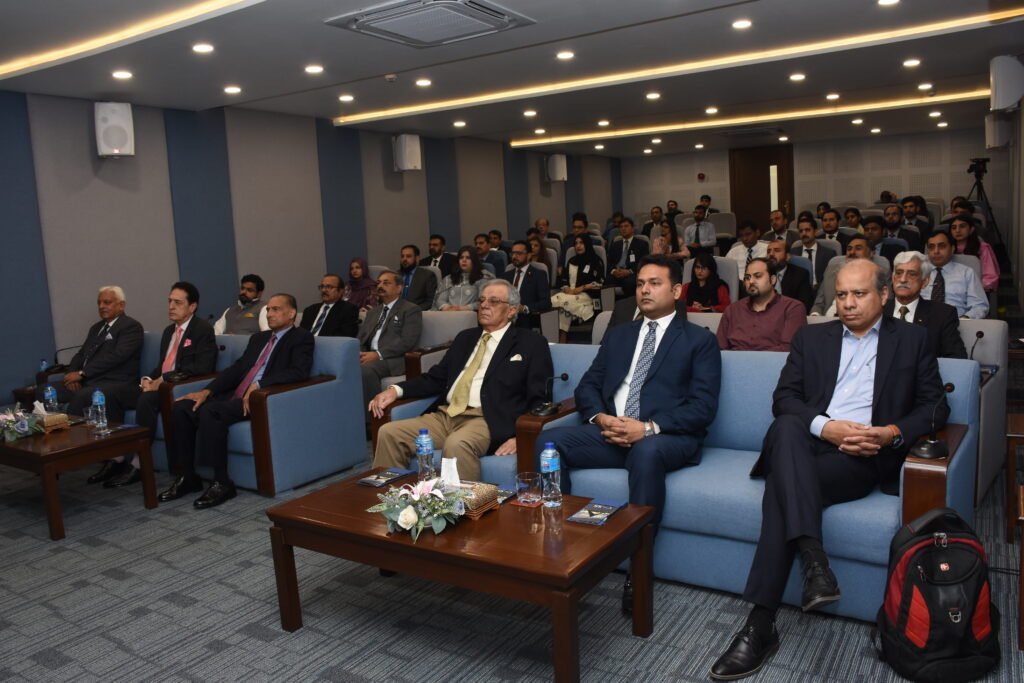
Seminar
Future Security Outlook of South Asia: Trends and Challenges
About The Event
South Asia is grappling with both traditional and non-traditional security issues, influenced by the region’s historical conflicts, political volatility, and socio-economic disparities. The security calculus of the region is further complicated by the implications of the evolving global political landscape, technological advancement, and environmental challenges.
A major security challenge for South Asia is the rise in extremism and militarism, particularly under Prime Minister Narendra Modi, who recently secured a third term in India. The country’s domestic and foreign policies have affected the regional security environment, posing serious challenges to the stability of neighbouring states, particularly Pakistan. Other persistent challenges include terrorism, economic instability, environmental degradation, and social unrest. The emergence of AI and cyber technologies further adds to the complexity of the non-traditional security equation.
The security dynamics of South Asia have profound implications not only for regional stability but also for global peace. Given that Pakistan occupies a central position in the region, the security challenges and opportunities in South Asia are of paramount importance for its national security. So, while there are challenges, opportunities for dialogue are there as well, and can help build trust and enhance regional cooperation.
In light of these challenges and opportunities, the Centre for Aerospace & Security Studies (CASS), Lahore organised a seminar titled, “Future Security Outlook of South Asia: Trends and Challenges”. The seminar generated actionable insights and strategic recommendations that could help shape a secure and peaceful future for the region and beyond.
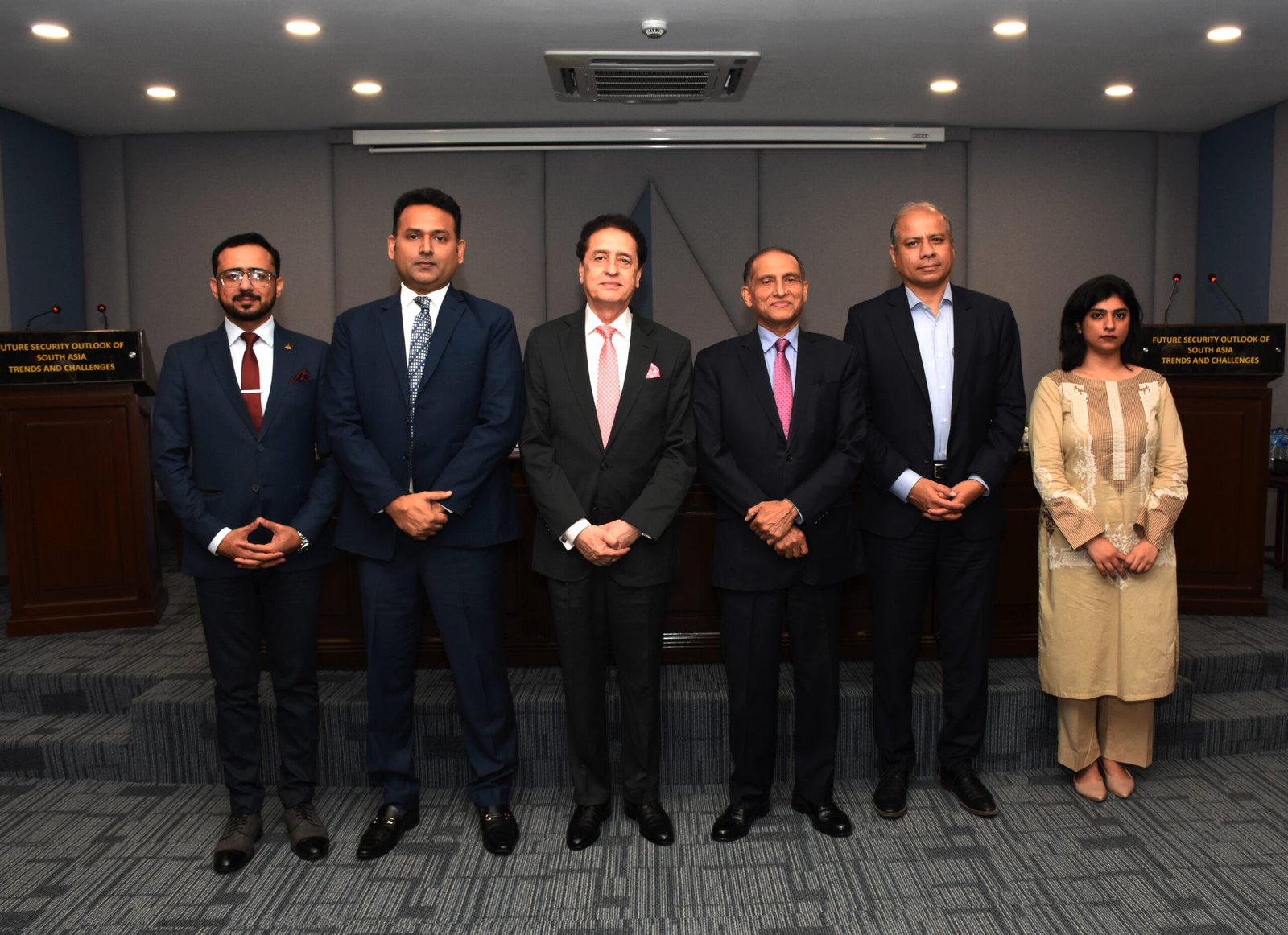
Key Takeaways
- India-Pakistan Conflict Dynamics
The future security landscape of South Asia is primarily driven by Pakistan-India relations, which have become more challenging post-August 2019. India now views Kashmir purely as a domestic issue and follows a no-contact policy with Pakistan.
- Global Shift and Indian Ambitions
The transitioning global order, marked by growing unilateralism, increased nationalism, and US-China competition, has significant consequences for South Asian security architecture, given India’s quest to find a new role in this structure.
- Saffronisation of Indian Strategic Culture
India’s strategic culture is being increasingly influenced by Hindutva ideology, leading to a more antagonistic shift in its strategic institutions which affects its approach to regional and global security.
- Marginalisation and Militarisation
The political marginalisation of minorities particularly Muslims and the militarisation of society in India contribute to an aggressive regional stance.
- Hindutva and Global Extremism
The Hindutva proponents in India are likely to align with global far-right extremist groups, which could result in a rise of Islamophobia worldwide.
- Neglect of Maritime Strategy
While India is focused on becoming a dominant maritime power, Pakistan’s neglect in this area hampers its ability to influence regional security dynamics and limits its strategic reach.
- Pakistan’s Afghan Policy
Pakistan’s policy towards Afghanistan is characterised by paradoxes and challenges, particularly those posed by the Taliban regime, including terrorism and an unsettled border.
- Positive Signs for Peace
There are positive signs in Pakistan-India relations, such as the LOC ceasefire agreement and ongoing indirect trade between the two countries. These developments could serve as potential starting points for further engagement and conflict resolution.
Policy Considerations
- Enhance Strategic Autonomy
To bolster strategic autonomy and prevent excessive reliance on any single power, Pakistan should endeavour to maintain balanced relations with major powers, particularly the United States and China.
- Invest in Maritime Capabilities
Pakistan should prioritise its maritime strategy and invest in naval capabilities to secure its interests in the Indian Ocean. This will enhance national security and regional stability, helping to mitigate the effects of regional isolation by India.
- Inclusive Planning for Geoeconomics
It is essential to incorporate diverse perspectives in strategic policymaking to successfully achieve the National Security Policy’s objective of shifting from geostrategy to geoeconomics, thereby fostering economic and social development.
- Integrate Azad Jammu and Kashmir and Gilgit-Baltistan
Pakistan should pursue the immediate provisional integration of Azad Jammu and Kashmir (AJK) and Gilgit-Baltistan (GB) into its federal structure, solidifying administrative control and providing residents with clearer legal and constitutional rights.
- Advance towards a Technology-Driven Society
The government should implement a comprehensive strategy to prioritise digitalisation to foster a technology-driven education system, and modernise key industries through incentives for high-tech adoption and R&D support to navigate the future security challenges.
- Invest in Peace Discourse
There is a need for focused research and dialogue on peace-building strategies in South Asia to challenge the narrative that conflict is inevitable and promote the idea that long-lasting peace is achievable.
- Re-evaluate Foreign Policy
Pakistan should re-evaluate its South Asia policy, bolster civilisational ties with Central Asia, normalise relations with Afghanistan, and effectively counter Indian efforts to isolate Pakistan and to create new strategic and economic opportunities.
- Expand Nuclear Deterrence
Enhancing Pakistan’s nuclear capabilities and responding decisively to Indian aggressions are crucial for maintaining strategic balance and safeguarding national security.

Post Event Report
A comprehensive report capturing expert analyses, strategic insights, key recommendations, media coverage, and event highlights.
Guest Speakers
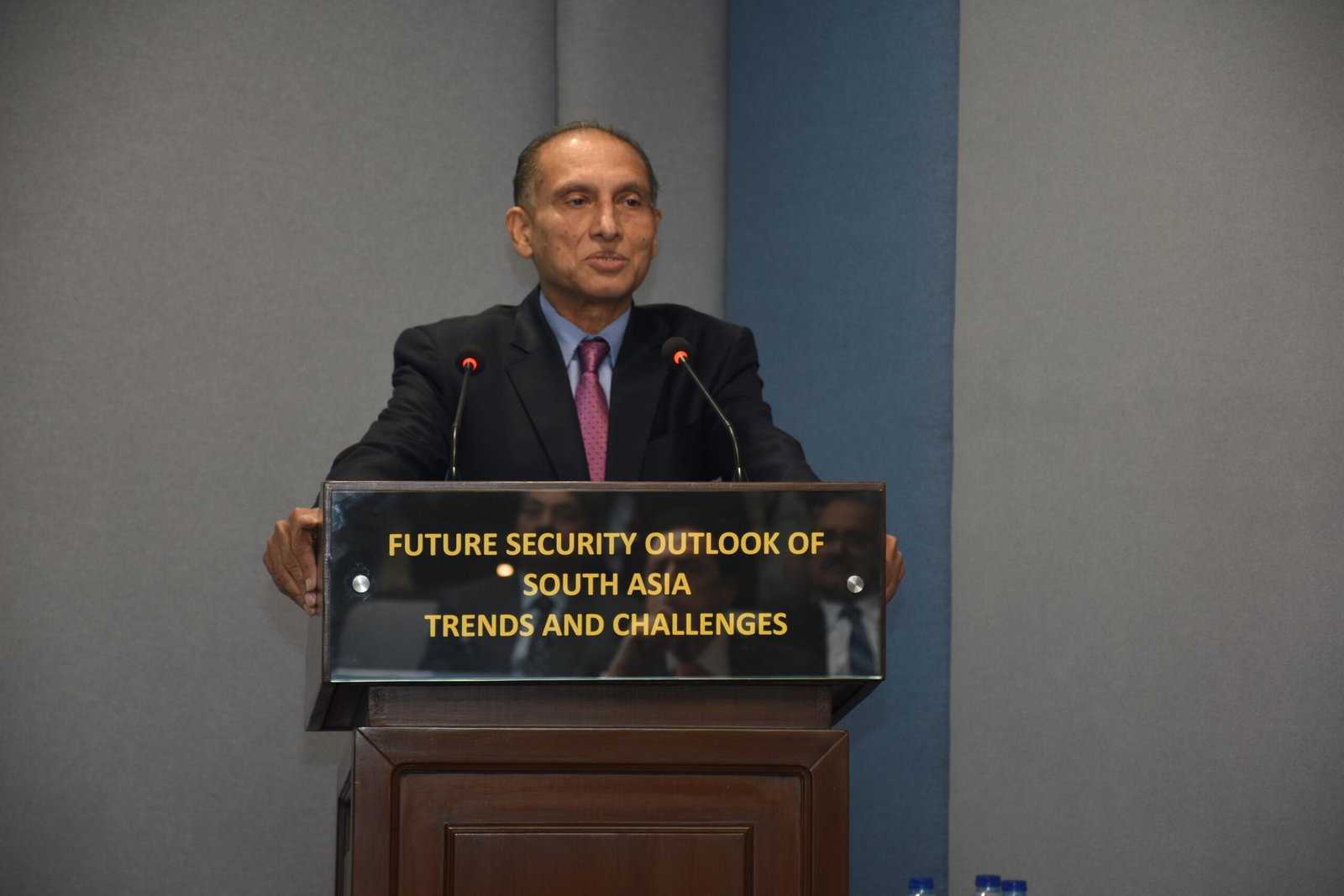
Ambassador Aizaz Ahmad Chaudhary (Retd)
Former Foreign Secretary
Dr Khuram Iqbal
Associate Professor, National Defence University, Pakistan
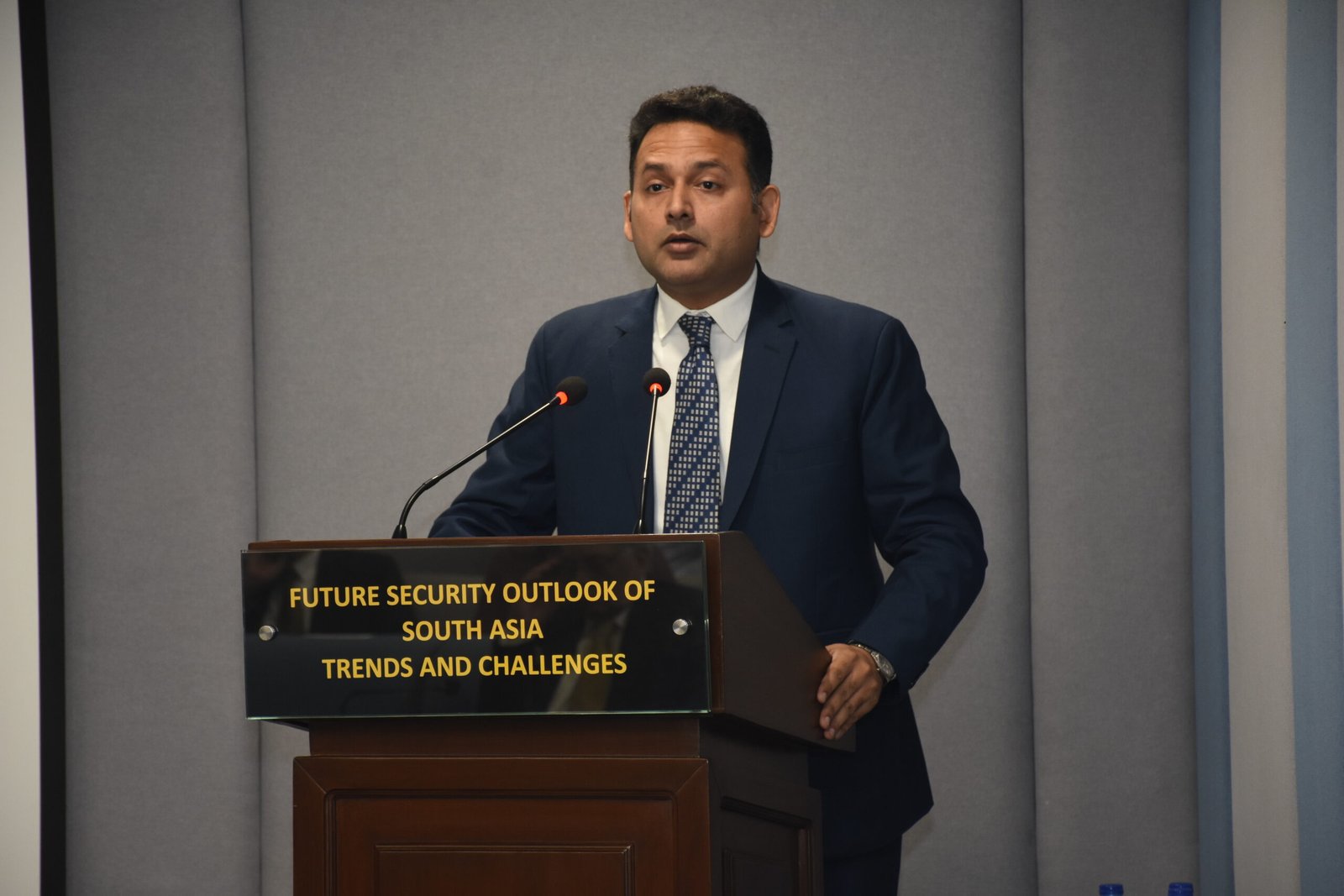
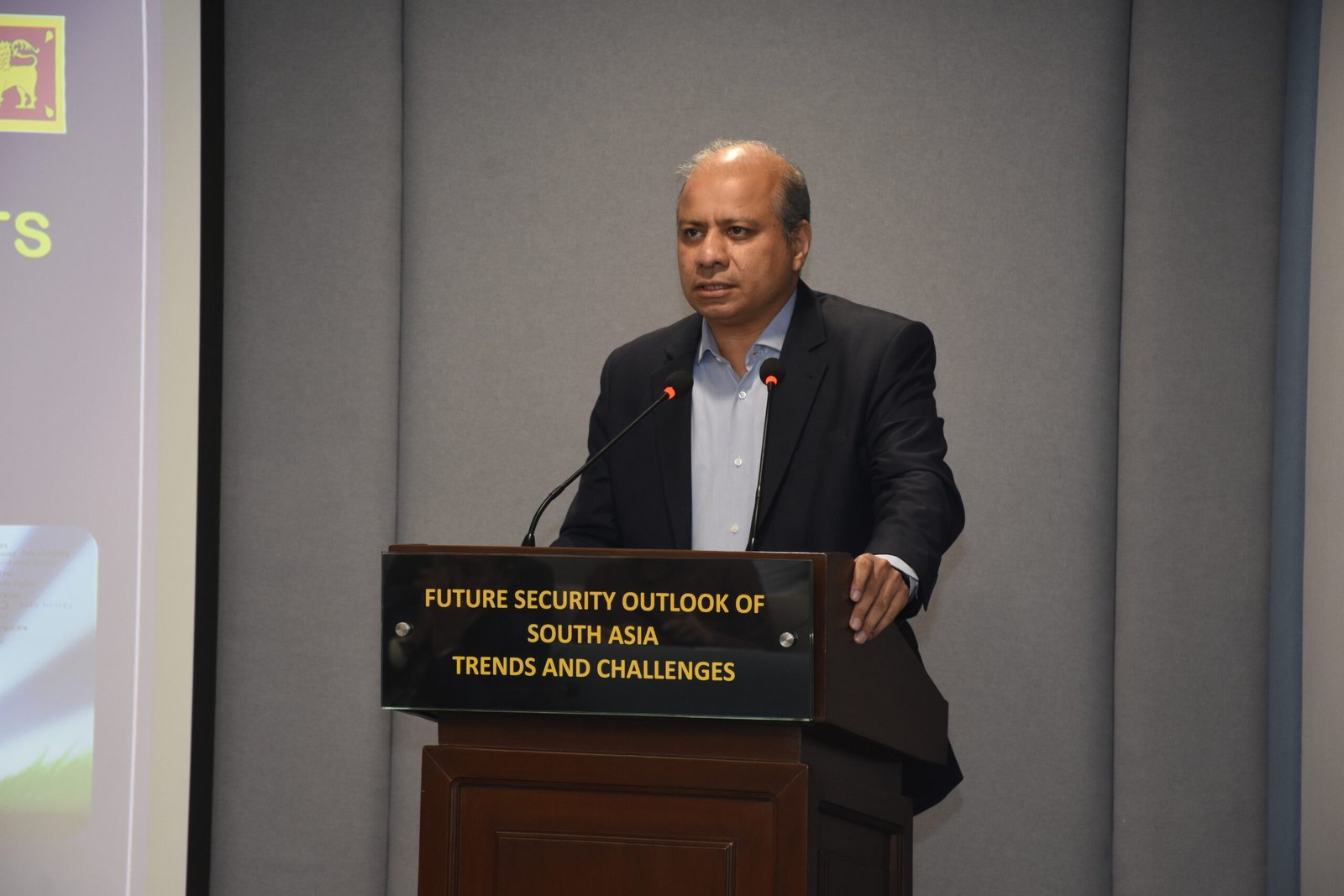
Dr Farhan Siddiqui
Associate Professor, Quaid-i-Azam University, Islamabad
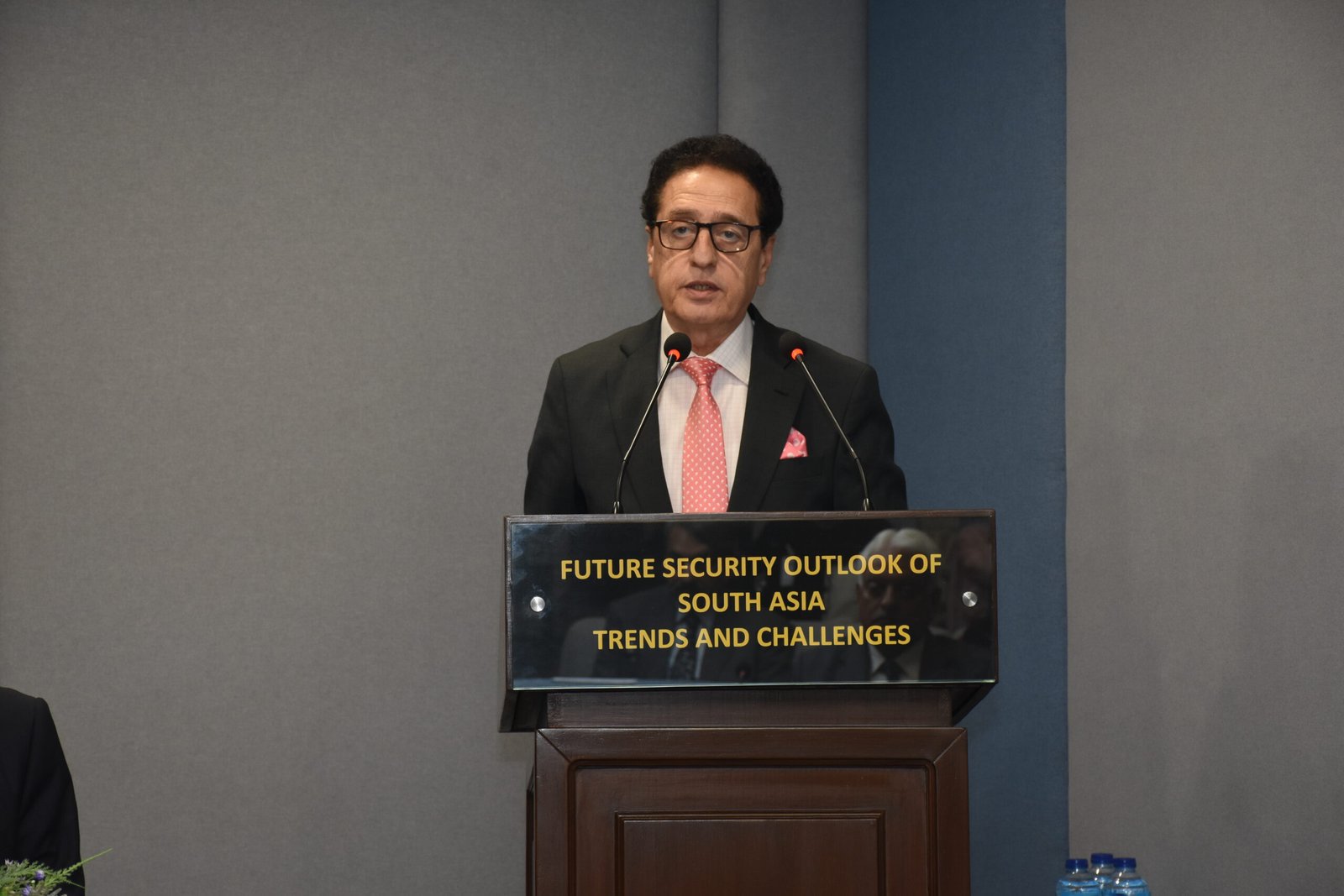
Event Chair
Air Marshal Asim Suleiman (Retd)
President CASS, Lahore
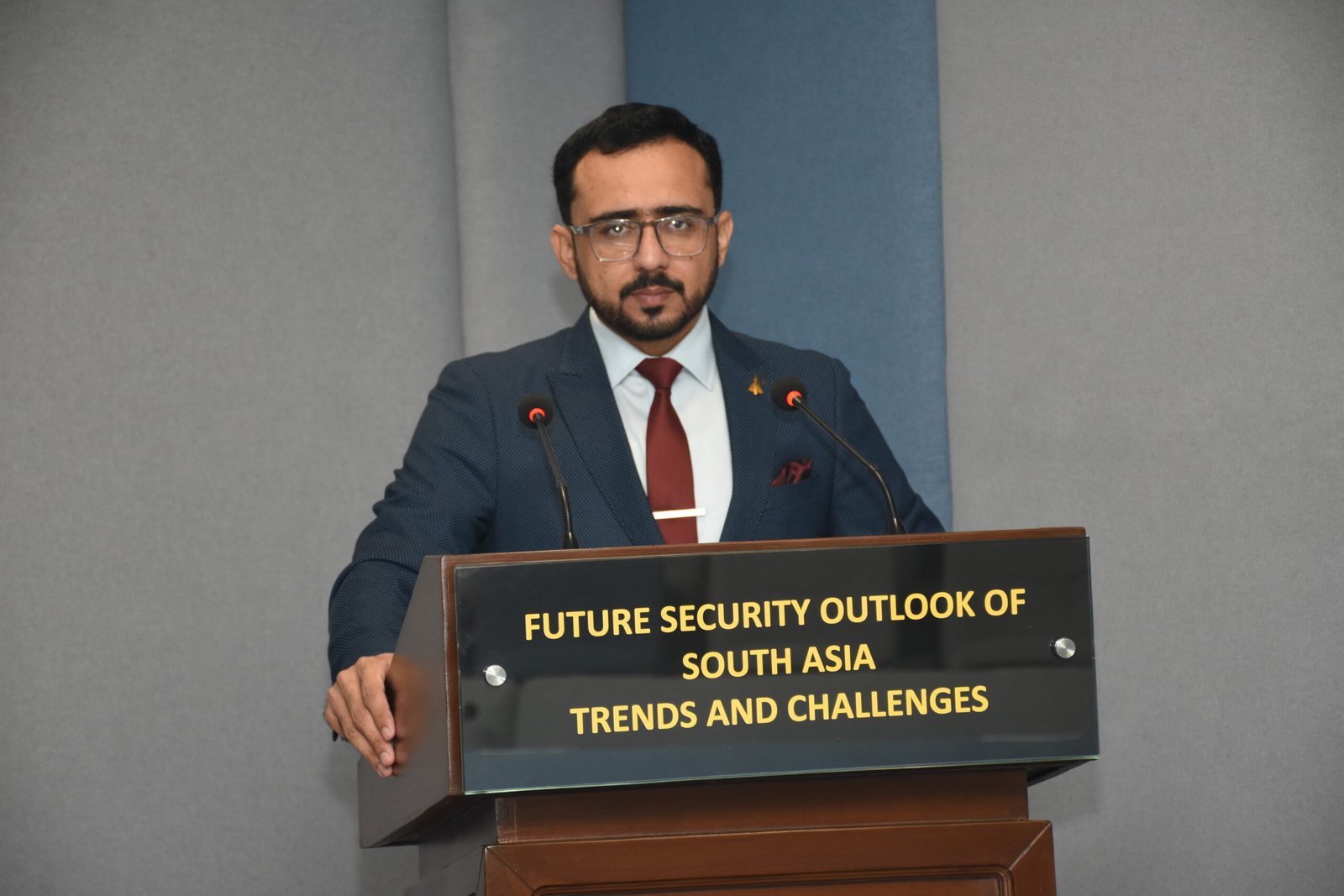
Event Coordinator
Ameer Abdullah Khan
Senior Researcher, CASS Lahore

Master of The Ceremony
Mehroo Waqas
Researcher, CASS Lahore
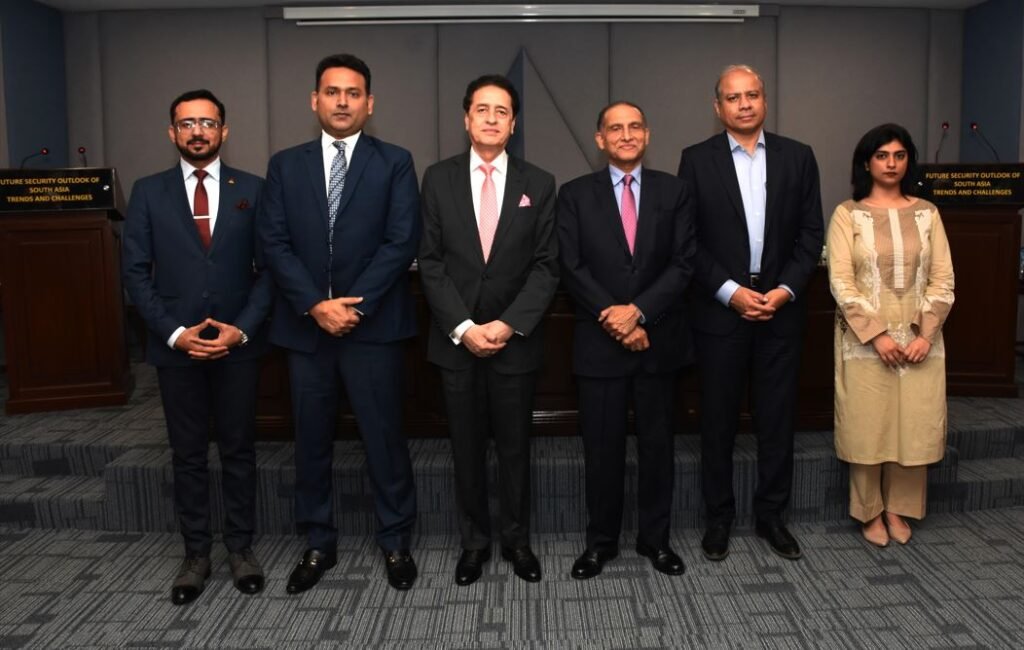






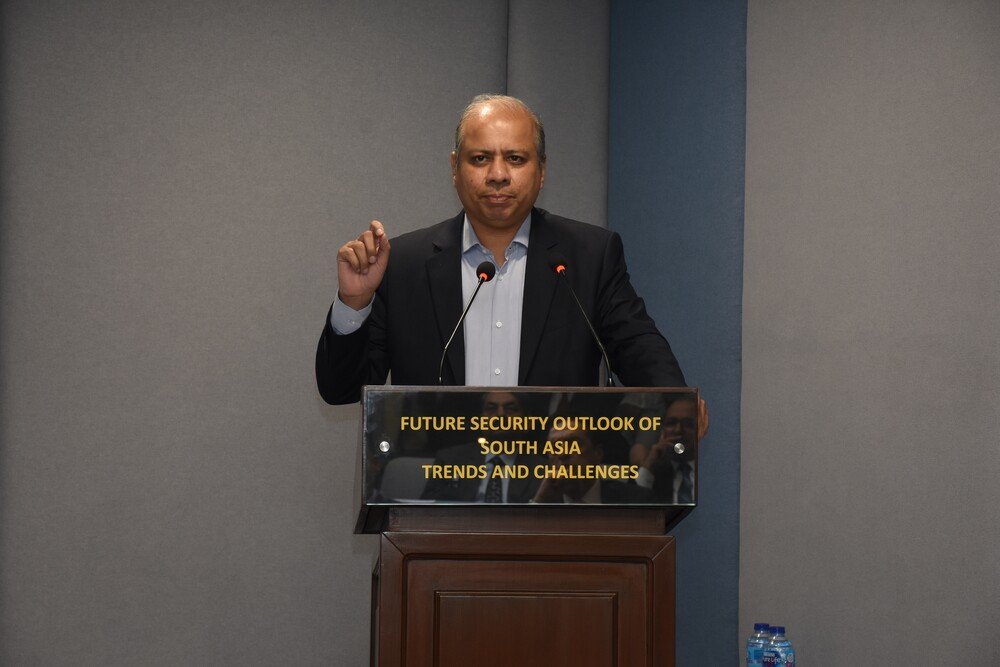
CASS LAhore

The Centre for Aerospace & Security Studies (CASS) was established in July 2021 to inform policymakers and the public about issues related to aerospace and security from an independent, non-partisan and future-centric analytical lens.
CASS Newsletter

@2025 – All Right Reserved with CASS Lahore.
- Home
- About Us
- Research Domains
- Publications
- Events
- Gallery
- Contact Us
@2021 - All Right Reserved. Designed and Developed by PenciDesign



